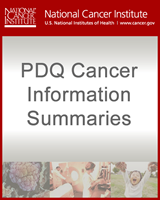|
Psychostimulants
|
| Methylphenidate | 10–30 mg/d for ≥2 d | Phase II studies with varying levels of benefits for different cognitive parameters (alertness, attention, memory, psychomotor speed, and executive function). |
| Small trials, not always randomized, did not always meet accrual goals; results should be interpreted with caution.[33,34]; [36][Level of evidence: II] |
| D-methylphenidate | 5–10 mg bid | Small, underpowered, placebo-controlled experience showed no benefit in verbal learning. |
| N = 57 |
| Placebo controlled.[37][Level of evidence: II] |
| Modafinil | 200–400 mg/d for 4 d–6 wk | Phase II studies with varied trial designs. |
| Benefit seen in psychomotor speed, memory, executive function, and attention, with largest study showing sustained benefit.[38][Level of evidence: II] |
| Interpret with caution: accrual problems, short study duration, and inadequate power. |
| No benefit seen in study in which patients served as their own controls.[34,35,39][Level of evidence: I] |
|
ESAs
|
| Erythropoietin | 40,000 U/wk | Multiple clinical trials demonstrated conflicting results; no intervention effect on improvement in subjective cognitive function. |
| Results difficult to generalize: varying assessment tools, small sample sizes, and differences in dosing and length of treatment.[40][Level of evidence: I]; [41][Level of evidence: I]; [42][Level of evidence: II]; [43][Level of evidence: II]; [44][Level of evidence: II]; [45] |
|
AChE Inhibitors
|
| Donepezil | 5 mg qd; may increase to 10 mg qd | Studied in patients 1–5 y postchemotherapy and >6 mo post-WBRT. |
| Mixed results of no treatment effect and some improvement in some measures of attention, concentration, and memory in each trial.[46][Level of evidence: I]; [47][Level of evidence: I]; [48][Level of evidence: II] |
|
NMDA Receptor Antagonists
|
| Memantine | 20 mg qd | One RCT; primary endpoint of improvement in delayed recall not statistically significant. |
| Treatment resulted in better cognitive function over time; delayed time to cognitive decline; and reduced rate of decline in memory, executive function, and processing speed.[49] |
